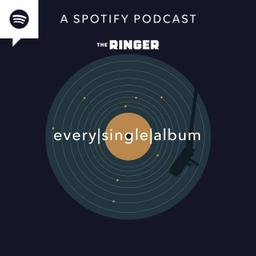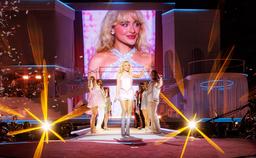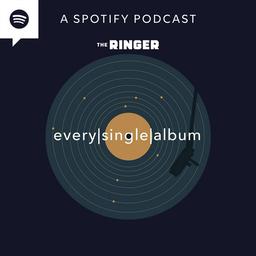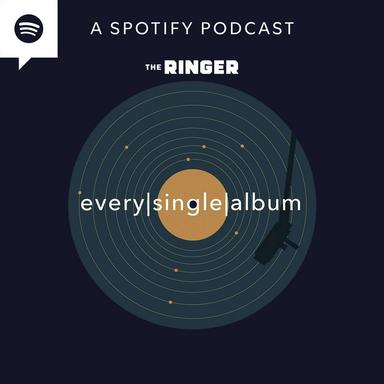The Year of the Pop Girl got started early. Between March and June, the roster of veteran pop artists who released albums included Ariana Grande, Beyoncé, Dua Lipa, Taylor Swift, Charli XCX, Billie Eilish, and Kacey Musgraves. Around that time, ascendant stars like Sabrina Carpenter and Chappell Roan finally broke through. For Roan, it was the combination of a viral Tiny Desk performance and her first bona fide hit, the single “Good Luck Babe!,” that took her mainstream. Carpenter’s fame skyrocketed with the megahit “Espresso,” followed up by “Please, Please, Please,” which paired with the momentum she generated with some fun opening-act performances on the Eras Tour—though, really, you and I both know that “Espresso” was all she needed.
Pretty soon, Pop Girl Spring gave way to Brat Summer. Barack Obama was bumpin’ that, bumpin’ that on his annual playlist, and, for the first time in a while, the top of the pop landscape looked alive and was teeming with female artists. The Year of the Pop Girl, along with a big, beef-centric year in hip-hop and a lot of country cosplay, became one of the dominant musical themes of 2024. It was a big year for many established pop artists, but even more importantly, it was the first time in a while that we got multiple new breakout stars like Roan, Carpenter, and, in her own way, Charli.
Of course, this equaled a big year for women in music, further evidence of the undervalued power of femininity in culture that defined 2023. That’s not to say that the appetite for female artists has been limitless this year or that all women succeeded, however—see Perry, Katy for an example of death by performative feminism. And I do wonder whether the narrative around this girl-powered year would have changed if, say, Harry Styles weren’t between album cycles.
Really, it may be the other operative word in Pop Girl Spring that deserves the focus. This has been a huge year for pop music, one that may have revealed a new trend that’s helped move the genre forward for the first time in a while. Relatability is out. Idiosyncrasy is in.
Take Charli XCX, whose album Brat owned a season, a color, and the zeitgeist and is one of the best examples of how the slightly left of center was embraced in pop music in 2024. Before Brat, Charli’s last album was 2022’s Crash, which she jokingly described as a “major label sell-out”; it featured an empty-calories lead single, “Good Ones,” multiple samples from classic songs, and relatively few of her typically nonconformist production choices. It didn’t really hit outside the U.K. Now, two years later, she’s found massive success with Brat—full of messy personal narratives, sardonic in-jokes about the music industry, and hyper-pop experimentation—and it became the kind of cultural force capable of uniting Martha Stewart, CNN’s Jake Tapper, and Julia Fox under the same banner.
Brat captivated so many because much of its messiness felt true to life, like the stream-of-consciousness question about balancing motherhood and a career on the song “I Think About It All the Time.” But Brat also packs a litany of winking punch lines about the games artists play with their audiences, leaving us wondering how much of this is just Charli doing an extended bit. Brat’s lauded remix album, Brat and It’s Completely Different but Also Still Brat—the title itself needling at the cash grab of the ubiquitous deluxe album—ends on a high note, a new version of “Guess” featuring Billie Eilish. The last line of that track is telling: “You want to guess if we’re serious about this song.”
Another one of this year’s pop winners, Carpenter, also performs with a winking playfulness. While Charli is a creature of the underground, Carpenter at first glance presents as a pop star in the lineage of classic mainstream icons like Britney Spears or Madonna. But one of Carpenter’s twists is a willingness to break the fourth wall. “I’m working late,” she croons, in one of the most quotable lyrics of “Espresso,” “’cause I’m a singerrrrrrr.” She rounds her vowel sounds with the same Western Pennsylvania accent that appears on a choice word ending in -er in another one of Carpenter’s hits from this year, “Please Please Please.”
It’s emblematic of Carpenter’s core contradiction: Her appearance as a classic pop star both masks and underscores how cheeky and even odd certain syllabic pronunciations or perspective shifts in her songs can be.
And of course, no reflection on the year in music would be complete without mentioning Roan, whose 2023 album, The Rise and Fall of a Midwest Princess, had a delayed breakthrough this year. Roan, too, blends traditional pop tropes with moments of high camp. Some of her momentum this spring came from viral videos of her opening gig on Olivia Rodrigo’s GUTS tour, particularly her performance of the dance-along song “Hot to Go!,” a.k.a. the Gen Z “YMCA.” And the idea of costuming is a major through line for Roan, musically, thematically, and otherwise—from her sonic forays into country and ’80s new wave, to the centering of drag culture in her live shows, to story lines about compulsory heterosexuality in songs like “Good Luck Babe!,” and even to her public frustration with paparazzi and the failure of some fans to separate the performer from the person.
Roan’s music is sonically diverse, outlandish, at times thorny, and immensely popular, and she serves as a stand-in for much of what has worked in pop music over the past 12 months.
The embrace of the idiosyncratic reads as a reaction, and maybe an antidote, to trends that have been blamed for some blander recent years in mainstream pop. Some of the stars of the most recent era seemed preoccupied with relatability, sometimes to the point of performing vulnerability or simply blandness. With varying degrees of success, albums by Grande, Swift, Lorde, and Styles from the previous five years have leaned heavily on introspection and the human beings underneath the stage makeup, rather than on provocation or spectacle, which are historically core elements of the pop star sales pitch. This trend led some critics to wonder whether the role of the pop star had been forever changed. In 2022, citing these shifts and the demands of the social media era, The Spectator warned of the death of the pop star altogether. And even this May, The New York Times questioned whether anyone other than Swift had emerged as a true global, cross-platform pop star in the past decade.
Swift is an undeniable factor in this dynamic—her every-girl style of storytelling and personal presentation have inspired generations of fans, but also dozens of musical copycats. As for the health of the overall pop landscape, she presents an argument for either side. She has been the biggest star in the world at least since the pandemic, when she released four albums, including two rerecorded albums, across 16 months, carrying into her record-breaking Eras Tour and this year’s The Tortured Poets Department, a cornerstone of the spring’s slate of releases. But her dominance has had the effect of rendering most of her peers miniature by comparison.
A pop environment where success can hinge on successfully pulling off quirks and meta wisecracks has springboarded some exciting breakthroughs this year, but it also presents challenges for established stars. Several of the year’s highly anticipated albums wound up feeling slight, even dated, for their lack of eccentricity. Grande’s Eternal Sunshine and Dua Lipa’s Radical Optimism, both albums that in title alone carry well-worn themes of self-improvement and self-actualization, underwhelmed despite containing some big songs. Radical Optimism’s lead single, “Houdini,” for instance, appeared on few year-end lists and wasn’t considered a major hit, even though it has been streamed more than anything from Beyoncé’s Cowboy Carter this year and barely lags behind “Fortnight,” the most streamed song on Swift’s The Tortured Poets Department. Eternal Sunshine is the only pop album this year to produce multiple no. 1 hits. Both Dua and Grande, however, were mostly ignored in the Grammy conversation and felt relatively separate from the discussion about what was vibrant in music this year.
Still, those who ignored the moment’s cultural shibboleth fared better than those who tried to get in on the bit and failed entirely. Perry’s September album, 143, arrived in a tornado of gags designed to spark online conversation—the “Woman’s World” music video scene where she sticks a gas nozzle into the side of her own hip, a rave kid aesthetic that seemed to borrow from Charli XCX, the constant use of the word “mother”—only to become a cautionary tale about her lack of self-awareness and trend chasing.
Perhaps to avoid the urge to seem in on the joke, the two biggest pop veterans to release albums this year chose to present them as almost extravagantly serious projects. Just a few weeks apart this spring, Swift and Beyoncé released two of the most highly anticipated albums of the year, The Tortured Poets Department and Cowboy Carter, both of which ran well over an hour in length. Both were so jam-packed with references—in Swift’s case, to her own personal romantic lore, and in Beyoncé’s, to the forgotten contributions of Black artists to American country music—that it was common for critics to liken both albums to thesis projects or dissertations. To my ear, both rewarded the close listening the artists asked for, though it’s also true that they haven’t necessarily inspired that type of listening over the long term, as streaming consumption of both albums has petered out. Especially in the context of this year’s goofier, more exuberant releases, it’s possible to read the sober In this essay, I will style of both projects as an attempt to sidestep a flop, or at least avoid apples-to-Apple comparisons to a newer guard.
So what happens next? On a basic level, this year infused pop with welcome freshness and exciting new artists. I’m sure that earnestness isn’t entirely a bygone—Gracie Abrams’s breakthrough to end the year suggests as much. Pop was never dead, but if it was threatened in recent years, one of its problems—the mistaking of relatability for authenticity, the idea that being “real” is being just like your audience—may now be getting a course correction. The Year of the Pop Girl got pop stars back to being larger than life, to making surprising songs, to wearing big, dark sunglasses and yelling at paps, to trying on costumes and getting mad at their fans. For the most part, it was fantastic. Here’s to more of that in 2025.






